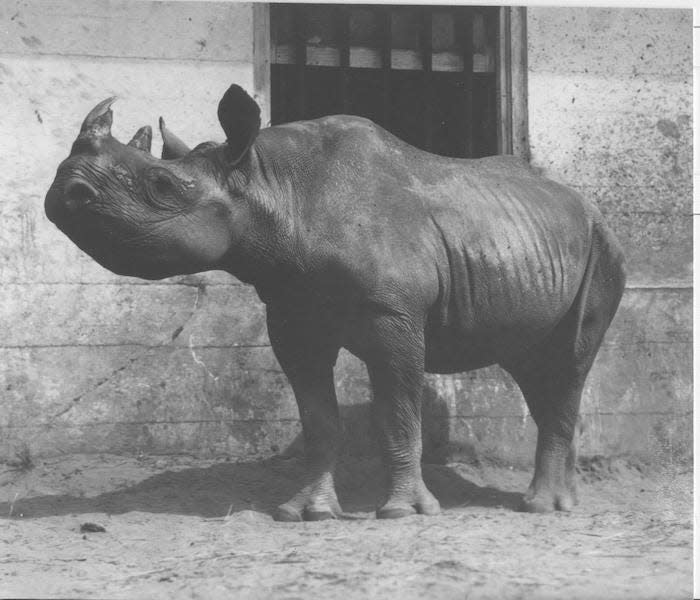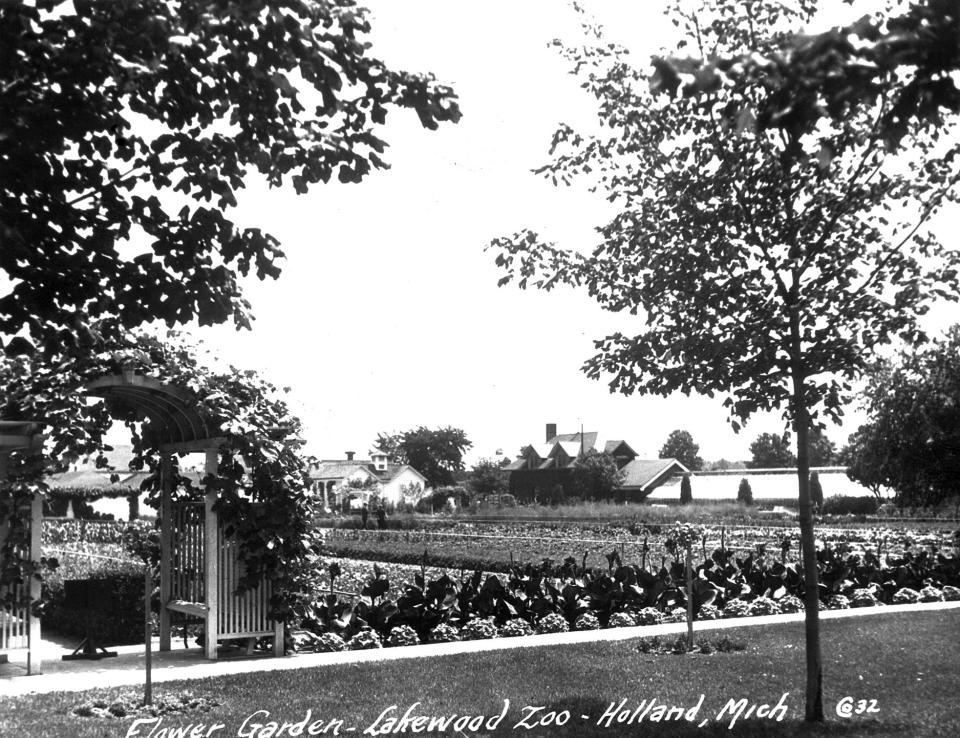Steve VanderVeen: Holland trucking company transported oil, celery and a rhinoceros
During the Great Depression, the infant trucking industry, like the infant automobile industry, continued to grow, albeit slowly. Unlike railroads and ships: trucks could ship door to door; plus, trucks could operate when shipping lanes froze over. The Cooper’s Holland Motor Express would grow as well. But danger lurked everywhere.
In those days, trailers had canvas roofs. Families were so desperate, especially in South Chicago, that men would jump from overpasses onto the trailer, slit the canvas roof, and throw freight to a person at the side of the road or in a vehicle.

Business crime existed as well: once a young lawyer, seeing the future of trucking, tried to force Holland Motor Express into receivership and name himself the court appointed receiver. Another time, two men, posing as state police officers, said they needed thirty-five dollars for an ad in their police magazine, and threatened to make trouble if they did not get it. Unfortunately, Katherine panicked and gave them twenty dollars. She would have given them more but that was all the cash she had. The next time they showed up, she threatened to call the police and they ran.
More:Steve VanderVeen: The foundation of Holland's same-name trucking company
The drivers also faced danger. One time a driver, delivering a load to Holland Color and Chemical, snagged a guy-were attached to a smokestack. He ended up pulling down the smokestack, but fortunately not on himself or the truck. Another time, on a trip from Chicago, carrying a load of oil drums from Sinclair Oil, John and Katherine witnessed a trailer fire near Benton Harbor. Upon seeing it, John wondered why they had agreed to carry oil. So, he turned around and drove the load back to Chicago. Upon arriving at the terminal, they learned that the burning trailer belonged to Tony Rutgers, one of their drivers. Later they learned that the accident occurred when the driver of a small truck fell asleep at the wheel and ran into the Holland Motor Express trailer from behind. Alertly, Tony Rutgers had decoupled his truck from the burning trailer and pulled the other driver, a Chinese emigrant, to safety. From then on, the driver sent Tony five pounds of tea every Christmas.
In 1931 the Coopers convinced the bank to give them a loan to purchase the old cannery building they were renting. Although the building did not have a dock, it had two large doors high enough for a trailer to drive under. But the loan had a downside: it leveraged their business and increased their likelihood of failure should they not secure viable rates from paying customers. So, John and Katherine were always on the lookout for good business.
Subscribe:Get all your breaking news and unlimited access to our local coverage
Once, in Chicago, a man approached John with a proposition. He wanted John to haul liquor to Grand Rapids for a premium price. But there were risks – at the time, there was a nationwide ban on the production and distribution of alcoholic beverages, namely Prohibition. John knew that if the police pulled him over, he might find himself in prison. The Coopers wisely decided not to accept Al Capone’s offer.
Instead, they hauled celery from Grand Haven. Although not as lucrative, it was legal. Eventually, the Coopers made enough money to purchase a truck of their own, then a second one, and even to get their trucks lettered with the Holland Motor Express name.

Until 1932, even with two children to care for, Charles and Robert, Katherine was still a full-time employee. She became a part-time employee when her third son, Gerald, was born. That added to the business’ growing pains. So, John hired Ed Prasch to run the Chicago office, his brother, Peter Cooper, to manage the Grand Rapids office, and Margaret Lindsay to manage the books. He also hired Katherine’s sister, Effie Townsend, to manage a new branch office in Indianapolis.
In 1933 the company fulfilled an unusual request: Getz Farm at the end of Lakewood Boulevard was closing down and it needed someone to transport a rhinoceros from Holland to the Brookfield Zoo in Chicago. Also, in 1933, John, Katherine, and Charles Lautenbach filed articles of incorporation and, in 1934, John and Katherine purchased Charles’ shares.

In 1935, the Michigan Truckers Association (MTA) held its first convention and elected John to their board of governors. The MTA then helped write legislation to protect truckers from cut-throat competition.
We will tell more of the Coopers’ story next week.
— Community Columnist Steve VanderVeen is a resident of Holland. Contact him through start-upacademeinc.com.
This article originally appeared on The Holland Sentinel: Holland History: Trucking company hauled oil, celery and a rhinoceros

